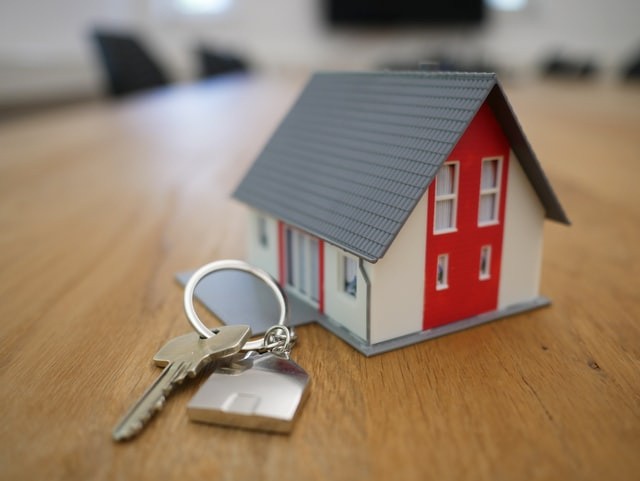
The VA Loan program was signed into law by Franklin D. Roosevelt in 1944. Having now been available for over eight decades, millions of servicemen, women, and veterans have benefited from the scheme over the years.
VA Loans are designed to make buying a home more attainable and affordable for those that have served their country. It's the least we could do, right? Unfortunately, house prices are rising across the entire US, making getting on the property ladder harder than ever before. This scheme from The U.S. Department of Veterans Affairs ensures that our servicemen and women can purchase a home without being subject to massive deposits and fees.
If you're thinking about utilizing your VA Loan benefit but are unsure where to start, this guide will help. We will talk you through five main things to do and think about during the VA Loan process and where to go when you're ready to apply. Keep reading to find out what they are.
1. Understand your eligibility
Eligibility for a VA loan is dependent on several factors, including your length of service. You may be eligible for the VA Loan scheme if you meet one of the following criteria:
You have served for 90 consecutive days during active wartime or 181 consecutive days during peacetime
You have served six years in the National Guard or Reserves
You are the spouse of an eligible service member who has died in the line of duty or as a result of an injury during service
The good news is that if you don't fit these exact criteria, some other scenarios might still mean that you're eligible. For example, specific reasons for discharge are still included in the VA scheme, such as hardship and certain medical conditions. This is where it can get a little complicated. You should speak to a VA Loan specialist about your circumstances to better understand your eligibility.
2. Understand the limitations
The VA Loan scheme is fantastic, but it's not without its limitations. It is a program meant for first-time homebuyers or those who wouldn't be able to own their own home without it. It's not for investment or capital purposes, and so if you're looking for a buy-to-let or a holiday home, the VA Loan would not be suitable.
The property you purchase with a VA loan needs to be your primary residence, and you will not be able to use the benefit again until that previous home is sold or the mortgage is cleared. The VA department prefers houses, and any other property type such as a condo or apartment will need to be approved. The property needs to be liveable and not a project or a fixer-upper, which can make a big difference to budgets.
3. Consider your options
The VA Loan is one of the best and most competitive mortgage schemes globally, not just in The United States. There's no denying that it's likely to be your best option, but it would be reckless not to consider the others.
We highly recommend that you compare the cost of a VA Home Loan against other loan offers you may have. Check that you are getting the best deal and that a VA Loan won't end up costing you more in the long run because of the no downpayment option.
4. Crunch the numbers
With a VA Loan, you won't be required to make a downpayment on your new home. This means that you don't have to find a huge lump sum of cash before you can even think about a mortgage. There is also no need for personal mortgage insurance, and your home loan will have preferential interest rates, potentially saving you thousands. But despite this, it's still a loan, and you still need to be able to afford it.
During your application process, you will be assessed for affordability, which will determine how much you can borrow. You should do this personally, beforehand, so that you have a good idea of your expenditure and budget. This way, you can get a headstart on the house hunt.
Before you make your purchase, you will also need to think about the VA funding fee, which is payable to The U.S. Department of Veterans Affairs. If your downpayment is less than 5%, your first-time VA funding fee will be 2.3%. After that, the funding fee increases on second-time use but can be reduced by applying a bigger deposit to your loan. Keep in mind that you do not have to pay the funding fee in some particular circumstances.
5. Speak to professionals
There are many different US Forces and Veterans groups online, all aimed at sharing advice amongst servicemen and women. Many of these people have likely been through the VA Loan process and can draw from personal experiences, something that will be very valuable to you.
It's also recommended that you consult with a VA Loan specialist, whether that be somebody within The U.S. Department of Veterans Affairs or a third party that works with the scheme.
So, what's the next step in the VA Loan process?
Now that you're familiar with the scheme and everything you should think about before formally submitting your application, it's time to get started with the VA Loan process. Once you're ready, all that's left for you to do is apply.
You will begin with pre-qualification, where your Armed Forces credentials will be checked, and all being well, you will obtain pre-approval for your home loan. Unlike standard mortgages, even blemishes on your credit history like bankruptcy won't hold you back. At the pre-approval stage, you will find out how much you can borrow, and it's time to go house shopping.
If you would like to utilize the VA Loan option but still make a downpayment, that's entirely possible too. In fact, it may even work in your favor with lower interest rates and smaller VA Loan fees.




